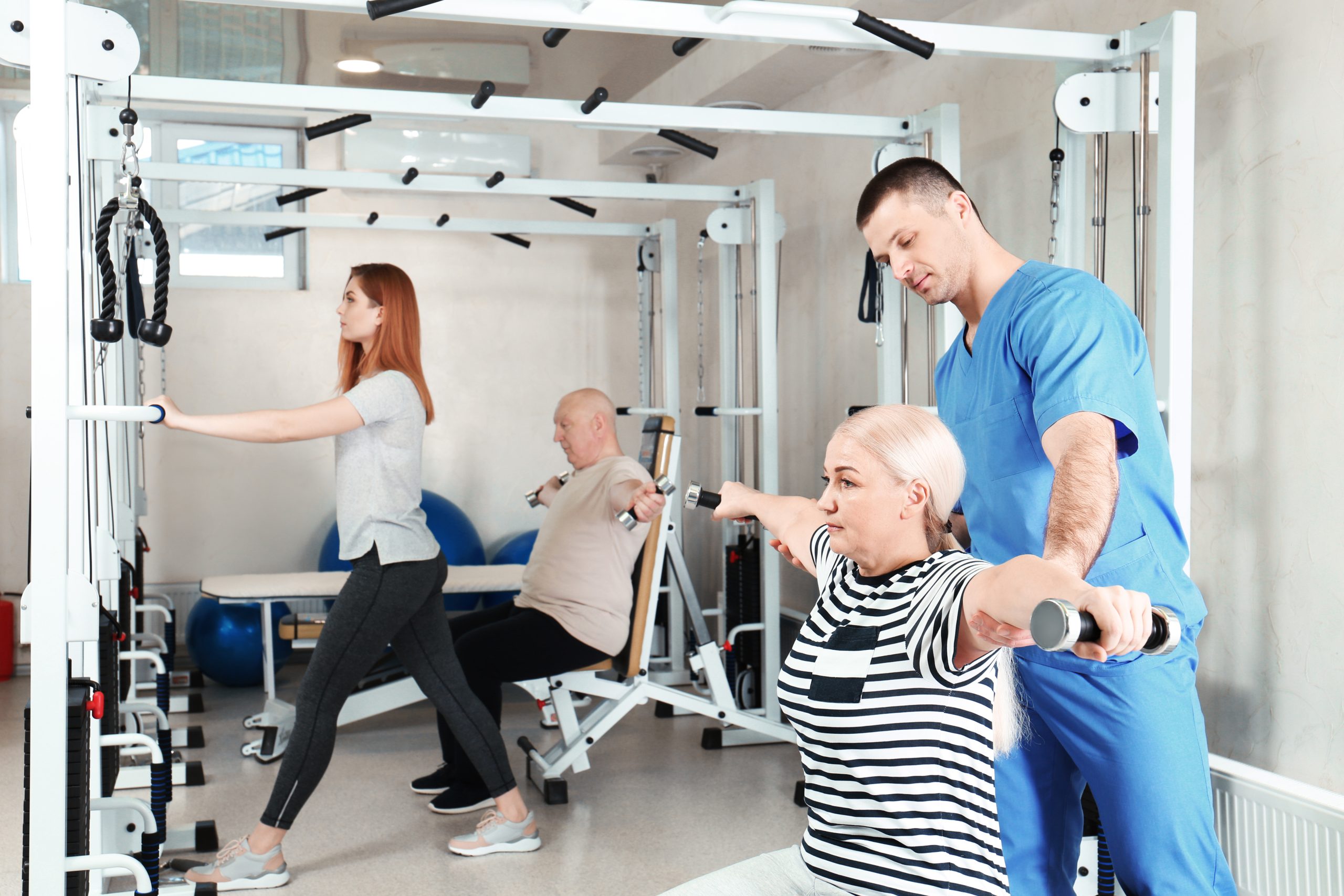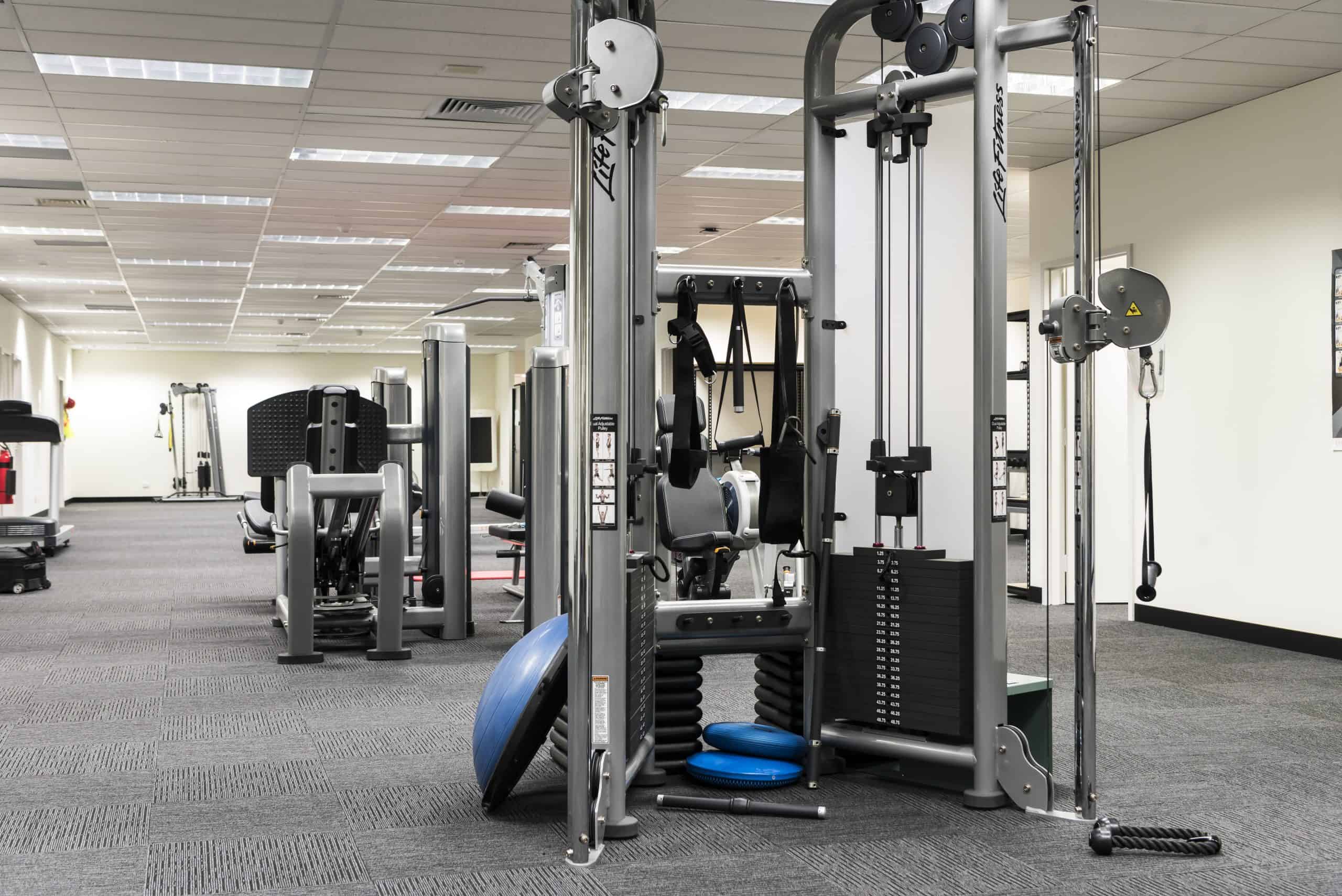Exercise Rehabilitation
Get employees back to full capacity through rehabilitation delivered by our accredited exercise physiologists.
Trusted by leading Australian employers.










What Is Exercise Rehabilitation?
Exercise rehabilitation helps workers recovering from health conditions return to full capacity as quickly as possible.
Following injury, surgery, or long periods of rest, patients can lose strength, flexibility, balance or endurance.
That loss can impede their ability to work effectively – and potentially lead to new injuries.
A targeted rehabilitation program can help recovering workers regain full functionality in a safe, supervised environment through various exercise-based interventions.
The result: a faster return to full duties and a lower risk of injury.
Exercise rehabilitation is available at all our clinics and for convenience and flexibility, we provide a mobile service at local gyms and fitness centres.
How Physical Stress Works
Physical stress is essential for your workers’ health – as long as it isn’t excessive.

When tissue isn’t put under stress at a sufficient intensity, duration and frequency, its stress tolerance decreases.
That means weaker bones and muscles.
Regular stress at an appropriate intensity and duration helps maintain tissue tolerance.
Gradual increases in stress intensity, duration or frequency promote tissue adaption.
Bones and muscles adapt by becoming thicker and stronger.
When stress exceeds the adaption range, it can result in conditions such as repetitive strain injuries.
Our Intervention Solutions
In our experience, our convenient mobile service increases the likelihood that our patients complete their rehabilitation programs, resulting in decreased recovery times and employees returning to work faster.
Our exercise physiologists work closely with our medical practitioners, surgical specialists and other practitioners to provide customised rehabilitation programs. We maintain a high level of communication with your injury management coordinators and insurer to ensure a positive rehabilitation outcome.
Work Hardening Programs
Work hardening programs – also known as physical conditioning programs – help new and returning workers adapt to a role’s physical requirements.
They’re designed for workers who can’t meet role requirements without a risk of physical overload and injury.
Most work hardening programs involve a combination of load reduction (the worker undertakes less work than normally required in that role), physical training, and simulated exercises.
Tissue adaption is still stimulated, but in safe, expert-supervised conditions.
As part of return-to-work requirements, our exercise physiologists may recommend work hardening programs.
For extremely physical roles, it can also be appropriate to implement work hardening in training regimens for new hires.




Movement Retraining
Retraining is required when an injury or surgery has been significant enough that role-required functions – such as walking, lifting or pushing – can no longer be performed safely by the patient.
Gait retraining, for example, involves teaching patients to walk and run in a way that protects their knees and hips.
Retraining can also be useful as a preventive tool – such as teaching workers to lift correctly, which reduces the risk of lower back injuries.
Schedule a consultation to find out more about how our exercise physiologists can help implement movement retraining in patient care pathways or in preventive group settings.
Surgical Expertise
At RediMed, we take pride in providing a wide range of medical services to our patients with some of Australia’s leading surgeons, which we offer within our clinics thanks to our extensive experience across various surgical disciplines.
Exercise Rehabilitation In A Holistic Care Model
Exercise physiologists rarely work in isolation.
Normally, patients will receive care from doctors and specialists too – and, if that care is delivered by different providers, the patient journey can become fragmented.
Costs blow out, referrals and bookings take time, and the patient is forced to communicate information between different parties, which can lead to less effective care.
That’s why our exercise physiologists work exclusively in multidisciplinary teams.
If one of your workers is injured, your dedicated customer relationship manager will assign them a clinical case manager (normally, one of our doctors), who will then orchestrate diagnosis and treatment by composing a care team of different specialist and allied health practitioners.
The result: each worker receives the care they need as quickly and cost-effectively as possible, leading to better clinical outcomes.


Exercise Rehabilitation FAQs
Our exercise rehabilitation unit includes multiple Accredited Exercise Physiologists. Each of our physiologists has:
- graduated with an appropriate bachelor’s degree after at least four years of study (such as a Bachelor of Science in Exercise Science and Rehabilitation)
- met the professional standards for exercise physiology, including at least 360 hours of practical experience working with clinical conditions.
We’re partnered with third-party gyms and training centres across Queensland and Western Australia, but, where possible, we’ll coordinate with your worker to attend their preferred training location. A personalised, participatory approach generally leads to better program adherence rates and better recovery outcomes.

